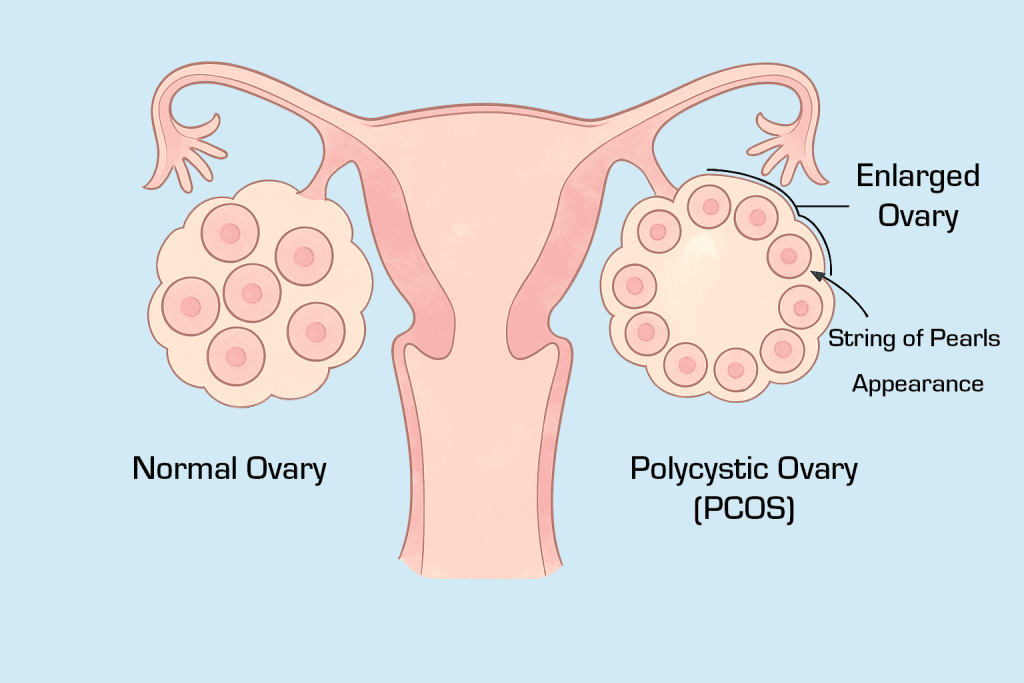What is PCOS?
Polycystic Ovary Syndrome (PCOS) is a common hormonal disorder affecting women of reproductive age. It occurs when the ovaries produce excessive androgens (male hormones), which can interfere with the development and release of eggs during ovulation. The condition often leads to irregular menstrual cycles and can affect fertility.

Signs and Symptoms
PCOS can present differently for each person, but common signs and symptoms include:
- Irregular or absent menstrual periods
- Difficulty getting pregnant due to lack of ovulation
- Excess facial or body hair (hirsutism)
- Acne or oily skin
- Thinning hair or hair loss on the scalp
- Weight gain or difficulty losing weight
- Darkened skin patches, especially around the neck, armpits, or groin
Who Should Seek Treatment?
Treatment is recommended if you:
- Have irregular periods or no periods for several months
- Experience symptoms of excess androgens (unwanted hair growth, severe acne, scalp hair loss)
- Are trying to get pregnant but have been unsuccessful for 6–12 months
- Have PCOS and are at risk for metabolic issues such as diabetes or high cholesterol
- Experience significant weight gain or difficulty managing weight
Treatment Duration
PCOS is a chronic condition with no single cure, but symptoms can be effectively managed.
- For fertility: Ovulation induction treatments may take several cycles to achieve pregnancy.
- For symptom management: Hormonal treatments are typically ongoing, with regular follow-ups to adjust medication and monitor progress.
- Lifestyle changes are lifelong strategies to help maintain hormonal balance.
Treatment Options
Treatment depends on whether you are trying to conceive:
If pregnancy is desired:
- Ovulation induction medications (e.g., letrozole, clomiphene citrate)
- Injectable gonadotropins if oral medications are not effective
- Intrauterine insemination (IUI) or in-vitro fertilization (IVF) for certain cases
If pregnancy is not currently desired:
- Hormonal contraceptives to regulate cycles and reduce androgen symptoms
- Anti-androgen medications to manage hair growth and acne
- Metformin to improve insulin resistance and metabolic health
Lifestyle management for all patients:
- Healthy diet and regular exercise to promote weight management and improve insulin sensitivity
- Stress reduction and adequate sleep for hormonal balance
Ready to Take the Next Step?
To learn more about artificial insemination or schedule your consultation, contact Dr. Meng’s office today or book an appointment online. Our team is here to guide you with care and clarity.